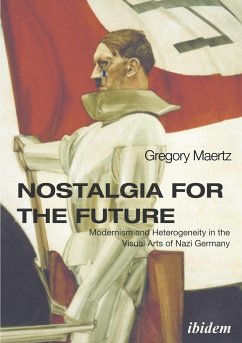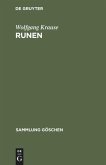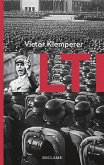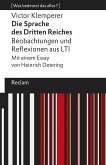In the first chapter on the German military¿s unlikely function as an incubator of modernist art and in the second chapter on Adolf Hitler¿s advocacy for ¿eugenic¿ figurative representation embodying nostalgia for lost Aryan racial perfection and the aspiration for the future perfection of the German Volk, Maertz conclusively proves that the Nazi attack on modernism was inconsistent. In further chapters, on the appropriation of Christian iconography in constructing symbols of a Nazi racial utopia and on Baldur von Schirach¿s heretical patronage of modernist art as the supreme Nazi Party authority in Vienna, Maertz reveals that sponsorship of modernist artists continued until the collapse of the regime. Also based on previously unexamined evidence, including 10,000 works of art and documents confiscated by the U.S. Army, Maertz¿s final chapter reconstructs the anarchic denazification and rehabilitation of German artists during the Allied occupation, which had unforeseen consequences for the postwar art world.
"Gregory Maertz's archival research changes everything we thought we knew about the visual arts in Nazi Germany. Maertz's discoveries here will affect the whole field of modernism studies. His chapter on post-war art confiscations and the partial rehabilitation of Nazi artists poses vital questions about how art history gets transacted and produced. This is a superb and indispensable study."-Professor Erik Tonning, Department of Foreign Languages, University of Bergen, and Director, Norwegian Study Centre, University of York "Nostalgia for the Future demonstrates that, beyond any doubt, a variety of artistic styles persisted under the National Socialist regime, with greater plurality in painting and culture than possibly any other socio-economic sphere. Maertz's findings challenge not only staid views of top-down 'totalitarianism' but the very core of decision-making by rival power centres in Nazi Germany; above all, the Wehrmacht. Additionally, in taking stock of nearly 10,000 previously-unseen paintings, hidden from view since the end of World War Two, this paradigm-shifting book reveals the striking diversity of artistic styles-including forms of high modernism-that persisted across in the Third Reich's years of terror. By exploding myths through careful, remarkable cultural-artistic and historical scholarship, Nostalgia for the Future deserves a massive readership by all specialists in the field, as well as by interested non-specialists. Maertz's monograph is for any reader wishing to trade comforting shibboleths for archival reconstruction and recovered history. I cannot recommend this book, or endorse these astonishing findings, in strong enough terms-you really need to read this study for yourself. Prepare to be shocked."-Professor Matthew Feldman, Emeritus Professor of History and Director, Centre for the Analysis of the Radical Right








